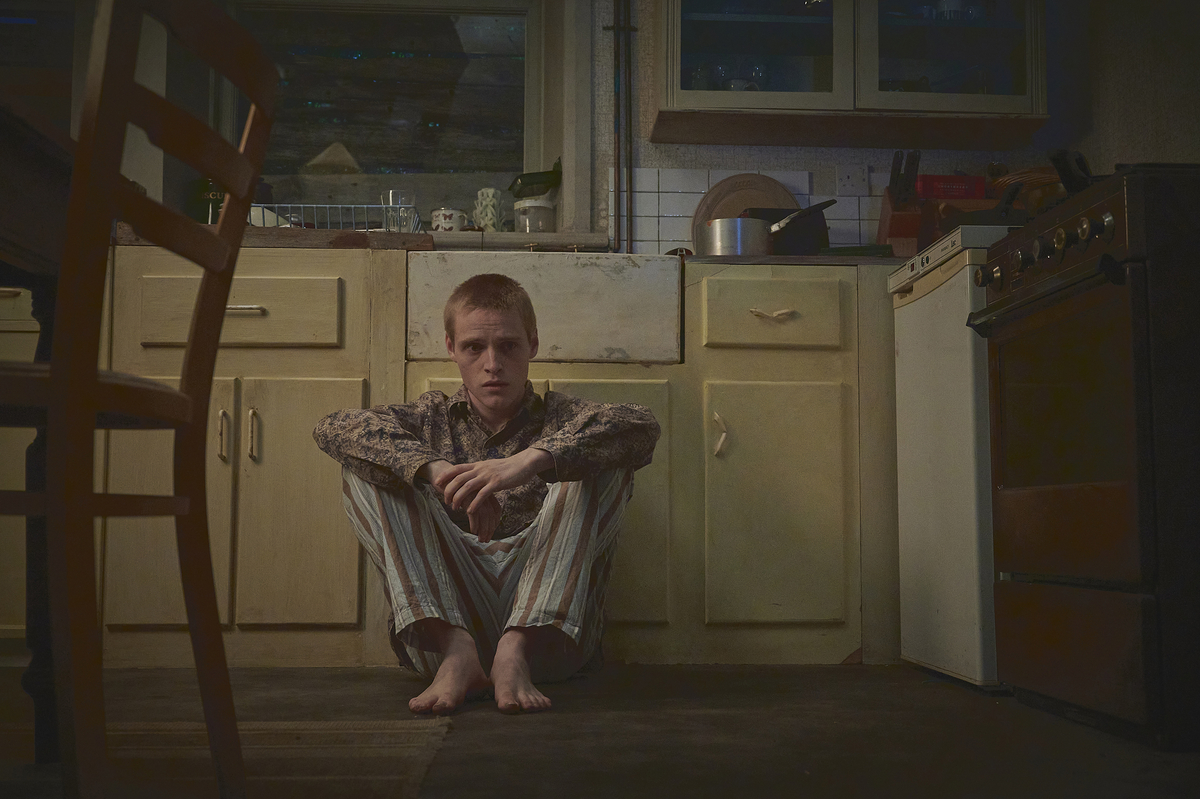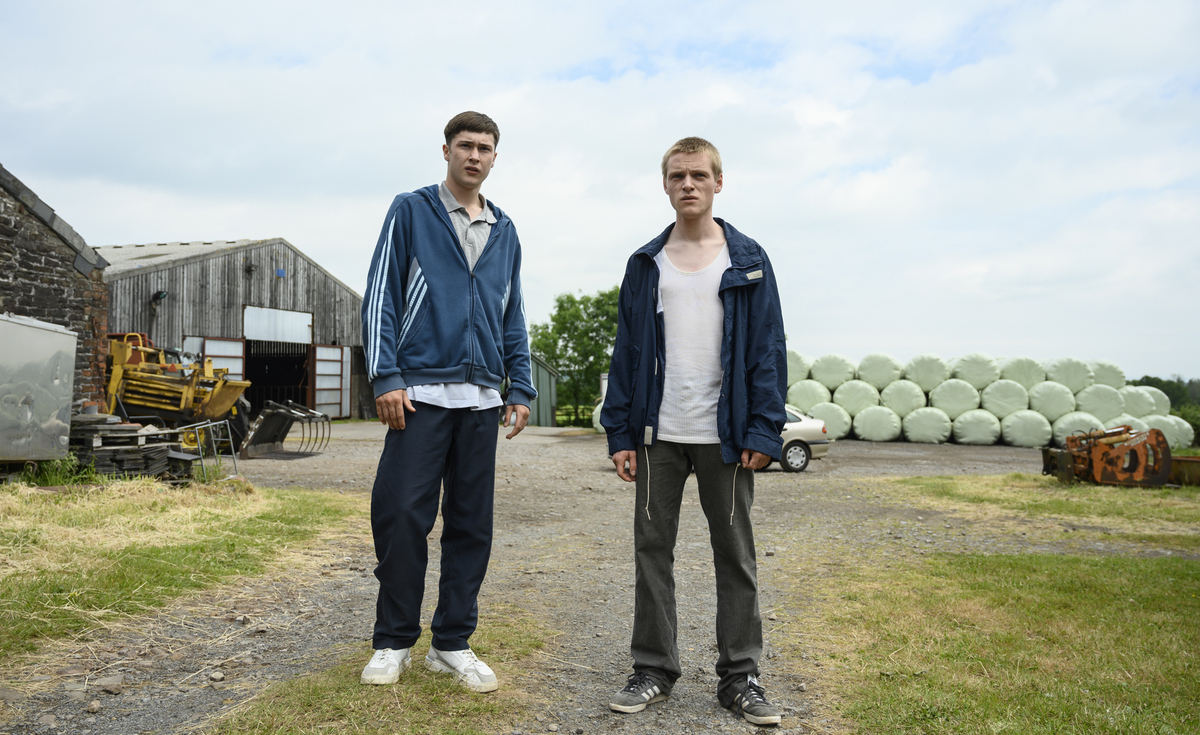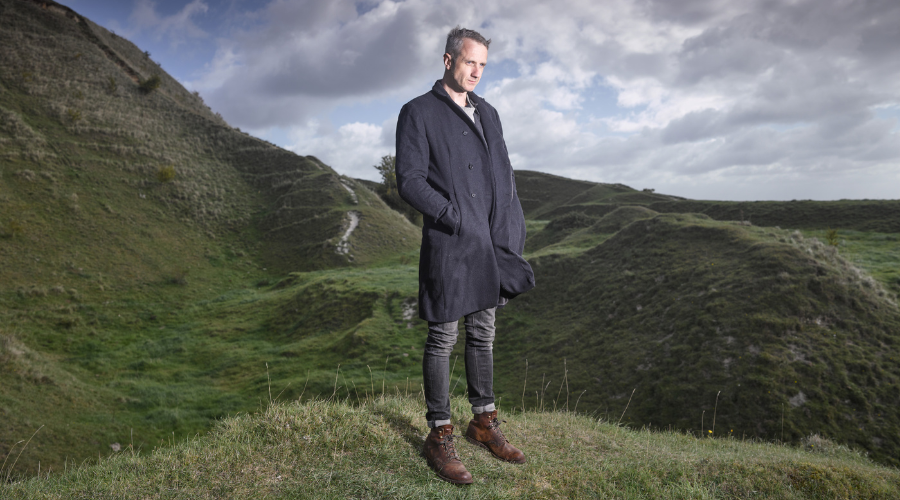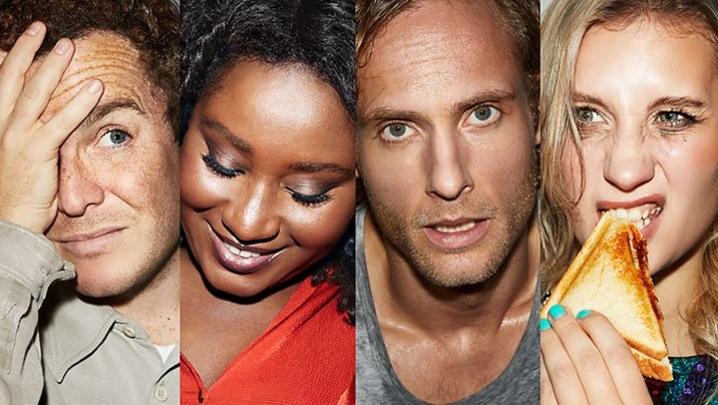Just where did Somewhere Boy come from?
Although it fast became one of the most celebrated British dramas of the year, it seemed to land quietly on Channel 4 and from unfamiliar parts.
It turns out that we have the writer Pete Jackson to thank, and it's only his first TV series.
The Channel 4 drama opens on the titular boy's origins: Danny has spent most of his life shut off from the outside world by his father, Steve, who warns him so severely of its many "monsters" that he stays of his own volition. That is until he is forcibly freed when he turns 18 and we follow his first tentative steps into the real world.
It hinges on a fertile premise that is often reaped for drama; Room (2015) took it and ran with it all the way to an Oscar win and several nominations. But with exceptional subtlety and empathy, Jackson finds a fresh angle by flipping the script. What Danny endures is undeniably abuse - the legal term is 'false imprisonment' - but he is falsely imprisoned in a loving home by his well-meaning, if grief-stricken and delusional, father.
It makes for a compassionate cautionary tale for which the spark, says Jackson, was his father's old Technics Mk 1 record player. "One of my clearest memories of childhood is sitting in our little council house in south east London and listening to his records on it."
A couple of years ago he dug it out from his garage and started listening to the same records with his son. He lists an eclectic mix: proto-metal like Mountain and Hot Tuna, Harry Nilsson's The Point (a record that apparently comes with its own comic book), and Marty Robbins. The Marty Robbins, he points out, even plays a part in the show. "Steve acting out El Paso [Robbins' iconic western ballad] with Danny is what me and my son used to do, until he decided he didn't want to anymore and broke my heart."

"Listening to those records together got me thinking of those safe worlds you create for your children, how devastating it is when you realise that they can't last, and what a man destroyed by grief might do to extend that." What Steve inflicts, then, is more overprotection than imprisonment, so that anyone familiar with the old parental dilemma of wanting to protect their child from the dangers of the outside world but having to expose them will sympathise with his solution.
Jackson certainly does, having two children of his own. "The idea of letting any child at any time out into the big wide world is scary. But I think now it feels scarier than ever because the world is an ever more complicated place.
"Young people are facing issues that their parents just aren't equipped to help them deal with, because it's new to us and we don't understand it," he says. "We'd never imagined that someone could come home from school and continue to be bullied through their phones up in their bedrooms. It's horrifying."
Given that it's his debut series, I was surprised to note that Jackson was 43 — until I found out that he didn't start writing until he was 30. Before then, he says, "I was just a drunk. I ran some bars and just drank really. And when you give up drink, they tell you in AA that you've got to do something to fill the void. So I picked up a pen and, with a shaking hand, started writing down ideas."
Although he's always been a "voracious reader", when I ask how he went about learning the craft, he says, quite simply, that he didn't. "Which I think has its benefits, because you end up finding your own voice," he says. And instead of following the standard beats, "you can allow the story to lead you wherever it needs to go."
The first pilot he wrote was turned down by the BBC. So, knowing that he was a recovering alcoholic, the producer Ben Worsfield suggested he write something inspired by his own road to recovery, and they came up with the idea for a series contained within the weekly meetings of an Alcoholics Anonymous group. The result was Love in Recovery, a poignant comedy drama about a motley crew of five recovering alcoholics which Jackson wrote for BBC Radio 4. It first aired in 2015.
Jackson found that radio was more willing than TV to take risks on newer writers like himself. Not that he minded switching mediums. "Radio was perfect for [Love in Recovery]," he says, "because it lends itself really well to the experience of being in AA, sitting and listening."
TV was, however, his "first love," so the plan was always to move to the small screen. He was especially desperate to work for Clerkenwell Films, the producer of such "bold and distinctive" series as The End of the F***ing World, so his agent set up a general meeting with Petra Fried, now Clerkenwell's MD.
"In this show, which is ostensibly about monsters, we posit the question: What if there aren't any?"
In what is becoming a recurring theme - and a testament to Jackson's persistence - Fried actually turned down his first pitch. He walked away, gutted. But on his way home, he was struck by an idea. He still remembers running upstairs, typing up the pitch and sending it in. Fried got back to him a minute later, and the next day she had sold Somewhere Boy.
Jackson's creative process will strike a chord with most writers. "I'll work with the execs at Clerkenwell, hammering out the outline for an episode, putting together a beat sheet. And then I will sit in this room — [he is Zooming in from what looks more like a bedroom than a writers' room] — listen to music, and drive myself completely bananas for about two days."
And not just any music. He says he creates a playlist for every script or series he writes, "because then you can instantly get transported into the world, with the tone or feeling you need." What was the tone of the playlist for Somewhere Boy? "Fucking weird," he laughs. "Sad and odd. Which I think probably sums up my career."
One thing he makes sure to abandon when writing is logic. "I try to inhabit the characters and live it and feel it as I write it. If you give it too much thought, the characters don't feel real because people aren't logical." It's this method, or lack thereof, that he says "gives us something that feels authentic and raw and living and breathing." Something, in other words, like Somewhere Boy.
"The intention was always to write scripts that were spare and all subtext. No one ever says what they're thinking," says Jackson of the series. "And to pull that off, you need a cast who can inhabit the characters and the world to such a degree that they fill the spaces in between the words with universes."
One such cast member was Lewis Gribben, who plays Danny by appearing to come from a different universe altogether. As he goes about awkwardly exploring his new surroundings, there's a touch of David Bowie's Man Who Fell To Earth about him.
It's a complex part, one that they thought would be a nightmare to cast. "But [Gribben] was one of the first five tapes we saw, and we knew from moment one that he was the guy," says Jackson. Even Gribben himself has spoken of his belief that the part was made for him, having always felt like an outsider.

Just as affecting is Samuel Bottomley as Danny's 18-year-old cousin Aaron, who begrudgingly takes Danny under his wing despite cutting almost as much of a tragic, lonely figure. Despite an upbringing free from abuse, he is naive and misled in his own, modern way. "He may have been living in the real world, but due to time spent on the internet, he's been living in his own strange little fantasy world under everyone's noses.
"[Somewhere Boy] looks at it through fresh eyes. Is this normal? Is this a normal way to live?" he laughs. "Endlessly online and housebound?"
We can see the effects of their respective fantasy lives - extremely online and extremely offline - in their views on sex. With hardcore pornography endlessly available to Aaron, he knows all about the cold mechanics of sex but nothing about love and romance. Whereas Danny knows nothing about the cold mechanics while knowing all about love and romance from the old films he used to watch with his father. "The truth lies in the middle," says Jackson, "and these boys help each other find the truth."
Although they taught Danny a primer on real romance, the old films also play a part in his manipulation. Jackson says he handpicked them because they are black and white in more ways than one: "those films depict the world that Steve is trying to present: a binary world where evil is evil, good is good, and the good guys win." Even he admits to diving into those films when he finds everything a bit overwhelming.
However, such films stand in stark contrast to Somewhere Boy. "In this show, which is ostensibly about monsters, we posit the question: What if there aren't any? Instead of monsters, it's just people trying and failing and getting stuff wrong like all of us. The world is more complicated than we'd like, but it is at least real, and richer and fuller for it."
Somewhere Boy is now available on Channel 4.




